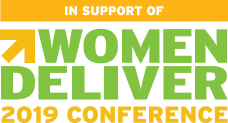Applications for this program are currently closed. Applications for fall co-circular programs will open soon. Check back in July/August for more information about summer 2020 programs.
Course Overview
Credits: 3
Term 1 (May 6th-June 20th), Summer 2019
Tues/Thurs 12:00-3:00pm
Point Grey Campus, UBC Vancouver
Room: Henry Angus Building, room 293
Instructor: Dr. Laura Lee; see bio below.
Course Description
This course, Global Women’s Health and Human Rights, will focus on critical issues related to global women’s health and her/their ability to exercise human rights. Using an inter-sectional approach, this course will examine a number of factors that women face in their pursuit of achieving and maintaining health, including, but not limited to economic, social and political factors.
Successful applicants to this course will receive a full conference admission to Women Deliver 2019, and will be required to attend as much of the conference as possible from June 3rd-June 6th 2019.
Students will be introduced to frameworks and theories through which to understand women’s health and rights. Incorporating lectures, guest speakers, readings, classroom discussion and experiential learning, this course will explore the Women Deliver 2019 conference theme of Power: Individual, Structural and Movements.
Students in this course will be required to apply their classroom-based learning to participation in the conference sessions and dialogue with organizations and individuals from diverse settings to inform their academic activities and understanding broadly.
For further information about Women Deliver 2019 conference visit https://wd2019.org/
Eligibility Criteria and Application Process
Students interested in ASTU 401C: Global Women’s Health and Human Rights are required to submit an application, as there are limited seats in the course and the $500 Women Deliver 2019 conference fee will be paid for each student from the ORICE Experiential Immersion Award fund. Applications are open to upper-level (min. 60 credits) students in the Faculty of Arts.
To apply, please follow the link below and answer the questions. Applications will be reviewed as received and the portal for applications will close when the course is full. It is highly recommended to apply ASAP for this course. Students accepted into the course will be contacted and asked to accept the offer, before being registered into the course on the SSC. Students not accepted into the course will also be notified by email. Please note that you may not be able to save your application and return to it at a later time once you have begun. You can preview the application below.
When ready, apply here: ASTU 401C Application
Course Instructor:
Dr. Laura Lee is a scholar practitioner in global child health. Laura has more than 15 years of experience in strengthening global child, adolescent and youth health programming, protection and services in adversity settings. Specializing in community-based participatory research methodologies, gender, child protection and participation, social justice and health equity and participatory program planning and evaluation, she has designed, implemented and analyzed research projects with children and youth in various countries in East and Southern Africa, Asia, the Middle East, and North and South America. In 2015, she obtained her PhD from University of British Columbia (UBC) for her work on the sexual health of young women heading households in Nakuru County, Kenya. She holds an MSc in International Health (Queen Margaret University, Edinburgh, 2006) for her thesis focused on community-based responses to strengthen the psychosocial wellbeing of child-headed households in Rwanda. She is an Adjunct Professor at the UBC in the Faculty of Medicine, teaching program planning and evaluation and topics around global health. In the Faculty of Health Sciences at Simon Fraser University, Laura has participated in HIV research with youth in South Africa and is a sessional instructor. Contractually she has worked with Proteknon Consulting Group, the International Institute of Child Rights and Development (IICRD), Queen Margaret University, World Vision, Terre des hommes (Tdh), Provincial Health Services Authority, and Vancouver Foundation, most recently exploring the role of sports (IICRD, Tdh, UNHCR and the International Olympic Committee) and the arts (IICRD, Tdh) in the protection and psychosocial wellbeing of youth in migration and adversity settings.
Additional Details
Inquiries about this course can be directed to ubc.orice@ubc.ca
